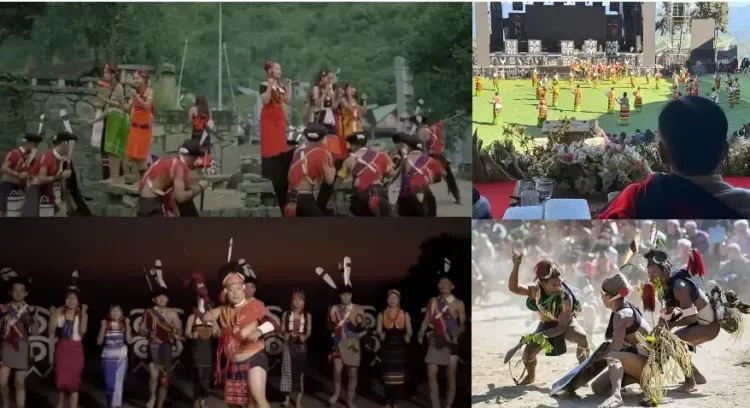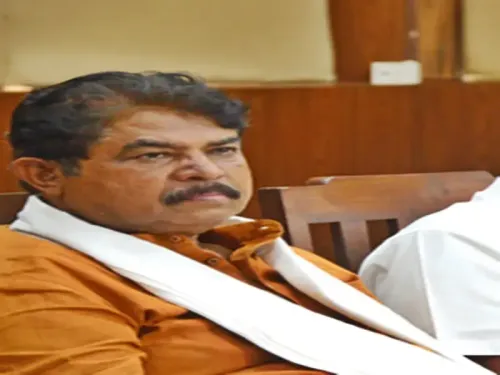Nagaland's Hornbill Festival: A Spectacular Showcase of Cultural Diversity Comes to a Close

Kohima, Dec 10 (NationPress) The 25th iteration of the 10-day Hornbill Festival reached its climax on Tuesday with a vibrant closing ceremony held in Nagaland’s Naga heritage village, Kisama.
The finale featured an enchanting cultural display and mesmerizing musical acts performed by various cultural groups, leaving attendees with cherished memories of the festival's distinct mix of traditions, music, and dance.
This silver jubilee edition of the Hornbill Festival has reaffirmed its status as a lively celebration of Naga heritage, attracting visitors globally to experience the beauty and unity of Nagaland.
The cultural showcase included Thele Lu (folk song) by the Chakhesang Cultural Troupe, traditionally sung by the menfolk during village dances.
This song is deeply significant within the community, performed while moving from place to place, leading to its name “Thelelu.”
Titse Nyeh Khidong, a millet harvesting song presented by the Sangtam Cultural Troupe, is renowned for its unique melody and widespread appeal.
The Zakhamaehou folk song, performed by the Angami Cultural Troupe, is a traditional tune sung by youths in gatherings.
AphiloKuwo, a warrior dance by the Sumi Cultural Troupe, is a significant dance of the Sumi Tribe, showcased during special events and festivals like Tuluni and Ahuna.
This victory dance is typically performed post-battle to celebrate triumph and symbolizes gratitude to God for blessings of wealth, strength, and power.
The Phom Cultural Troupe delivered a commemorative performance (Pangital) depicting a woman who bravely defeated her foes through intellect, courage, and grace.
Legend has it that when all the adult males were out in the fields, she remained home weaving a traditional wrap-around (chi tesu) on a back strap loom, while the Dim Dim Chong by the Garo Cultural Troupe is a folk song associated with the Wangala festival.
This song captures the essence of the Wangala festival, celebrating the joy and revelry shared among all generations.
According to an official from Nagaland’s Tourism and Art and Culture department, which organizes the Hornbill Festival, this silver jubilee edition saw participation from countries such as Japan, the U.S., the U.K. (Wales), Peru, and Bulgaria, along with partner states Sikkim and Telangana.
In addition to daily performances by numerous cultural troupes from all eight northeastern states, the iconic Hornbill Festival also featured sales of local products, handloom and handicrafts, artworks, horticulture, a traditional stone pulling ceremony, a film festival, photo exhibitions, heritage walks, a kids’ carnival, International Hornbill Naga Wrestling, and indigenous games.
Other major attractions of this annual celebration, which commenced on December 1, included local cuisine, a food festival, competitions like Naga King chilli and pineapple eating contests, a World War-II rally, outdoor adventure activities, mountain biking, Dzukou Valley Day Hikes, a Bamboo Carnival, and a Night Carnival.










